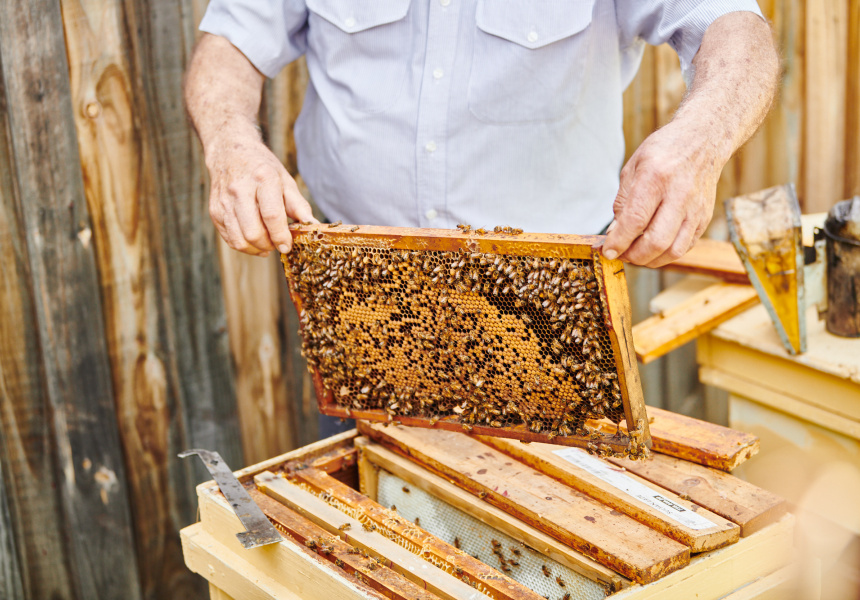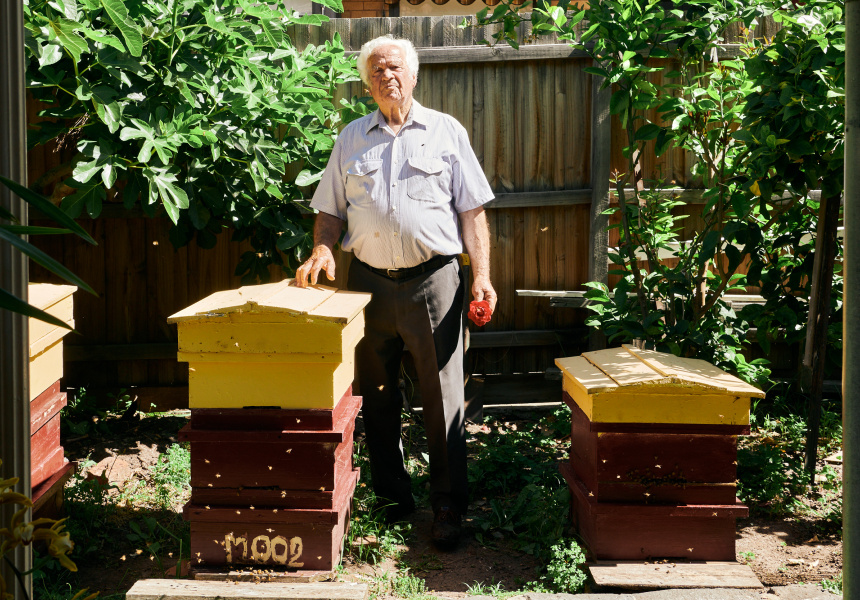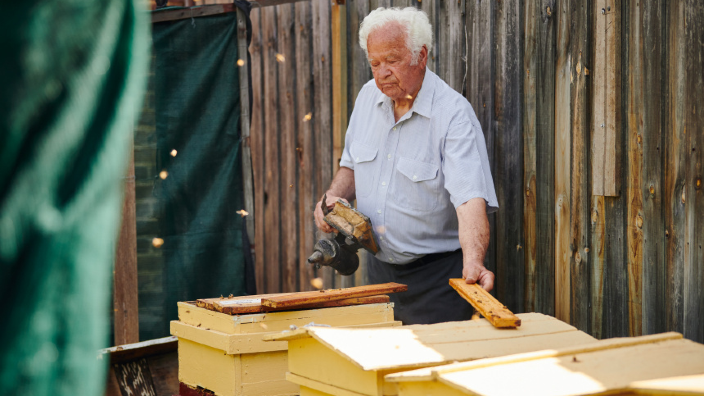Kyriakos Malathounis has been working with bees since he was five years old. Now 87, he maintains hives in his backyard in Windsor and spends most of his days tending to his garden and of course, his bees.
“I’m like a doctor who keeps notes on his patients and who knows all about them,” Malathounis told Broadsheet.
“I watch my bees and know what they need and when it’s time to build a new hive. Every hive has its own personality.”
Malathounis, who sells his honey under the name Mr Mala, grew up on the island of Imbros, when it still belonged to Greece and had an entirely Greek population. In 1970, it was officially renamed Gokceada and became part of Turkey, eventually leading to a mass exodus of the original residents.
Malathounis is one of seven siblings. His father died at a young age and according to Broadsheet, Malathounis started helping his mother with the bees.

She had hives hanging from trees around their property but Malathounis thought there was a better way of housing the bees and set about constructing pine boxes that sat on the ground, had a lid and a series of frames that hung like folders in a filing cabinet.
While the first beehive was almost a disaster, as Malathounis grew older and the years passed, he was working with 350 hives, producing 15 tonnes of honey a year and trading his product across Europe.

In the 1960s, the Turkish government – by then in charge of the administration of Imbros – increasingly took measures to marginalise the Greek population, leading to the aforementioned exodus.
According to Broadsheet, Malathounis was in his thirties and decided to move to Australia. When he first arrived, he was unable to make money from selling his honey so decided to work on the production line at General Motors Holden.
Then, having trained as a chef in the Greek army, he cooked at Kaliva in Richmond for 23 years. But he always kept his hives and vegetable garden going.
In winter, he makes the hanging wooden frames for his beehives – the same model he designed on Imbros when he was 12. Only these days, the hives are painted cream and burgundy, like his Edwardian-style house. By summer the frames are filled with honeycomb.
“If you get a good summer, you’ll be bringing honey out every week,” he concludes.
Mr Mala honey is available online or through Whisked at Prahran Market.
Source: Broadsheet.

